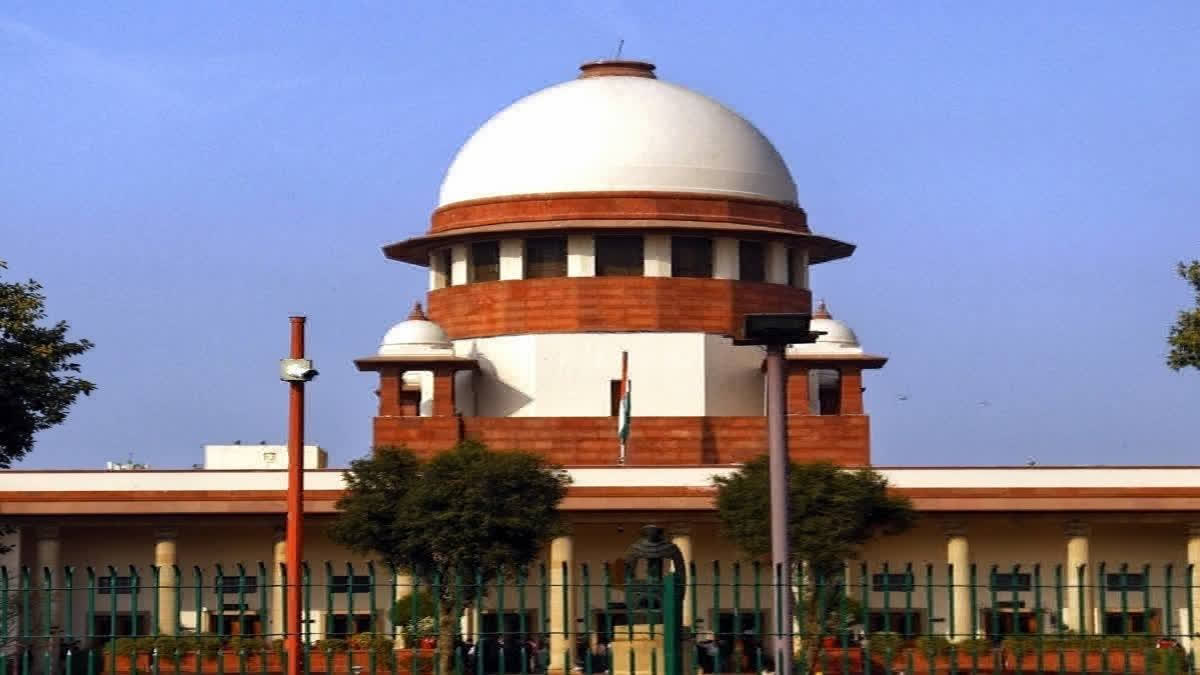New Delhi: A three-judge bench led by Chief Justice of India D Y Chandrachud deferred the hearing on a plea to strike down an exception to the husband from penal provision of rape as the CJI said it would not be possible to conclude the hearing before his date of retirement on November 10.
The bench, also comprising Justices J B Pardiwala and Manoj Misra, had heard the matter on October 17. The bench considered the time estimates given to counsel involved in the matter and adjourned the proceedings for four weeks.
A battery of senior advocates representing various parties including the Centre and state requested the bench led by CJI to give one day's time for each of them to put forth their arguments in the matter. The bench noted that due to paucity of time, due to CJI’s retirement on November 10, it would not be possible to complete the hearing and deliver a judgment in the matter.
"It would not be possible to complete the hearings in the foreseeable future," said the bench. Senior advocate Karuna Nundy, representing a petitioner, said she was keen to continue arguing before the bench led by the CJI and added that it was very much possible to conclude the hearing if everyone followed the time schedule.
Solicitor General Tushar Mehta, representing the Centre, reiterated the Centre's stand brought on record in an affidavit that marriage does not obliterate the concept of sexual consent but criminalising marital rape would require the court to assess the situation from different perspectives.
Nundy urged the bench to continue hearing the matter. Addressing the CJI, she said, "Your legacy would warrant that this case be heard for millions of women". At this juncture, Mehta said CJI's legacy would still be remembered and this statement was not required to be made.
The matter would now be posted for consideration afresh before another bench. On October 17, the Supreme Court queried whether striking down the marital rape exception will create a new offence, and also if it were to strike down the immunity clause in the penal codes then the offence will be covered under the main provision on rape?
Under the exception clause of Section 375 of the IPC, now replaced by the BNS, sexual intercourse or sexual acts by a man with his wife, the wife not being minor, is not rape.
On October 3, the Centre in an affidavit in the Supreme Court, opposing the petitions seeking the criminalisation of marital rape, said that in matters falling squarely within the domain of the regulation of marital relationship between spouses, a societal issue, due deference be exercised while testing the validity of legislative choice made by the Parliament. Marital rape is excluded from the ambit of "rape" by way of Exception 2 to Section 375 of the Indian Penal Code.
In the counter-affidavit, the Union Home Ministry said given the nature of the marital institution in our socio-legal milieu, if the legislature is of the view that, for preservation of the marital institution, the impugned exception should be retained, it is submitted that it would not be appropriate for the apex court to strike down the exception.
The affidavit said the Centre is committed to fully and meaningfully protect the liberty, dignity and rights of every woman who are the fundamental foundation and a pillar of a civilised society.
The government said it attaches the highest importance to ending all kinds of violence and offences causing physical, sexual, verbal, emotional and economic abuse including domestic violence against women.



